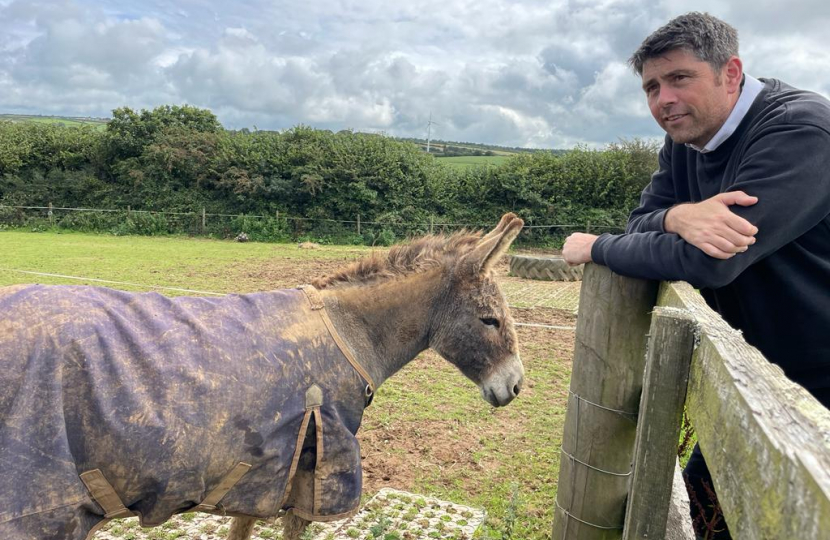
We committed to spend £2.4 billion in the farming sector on average every year of this Parliament and we will deliver. In your constituency alone, we have invested £20744490.27 in farming since 1 April 2023.
We are moving away from the EU’s bureaucratic Common Agricultural Policy, which saw 50% of the budget reach the largest 10% of landowners. The Government’s new schemes are investing in the foundations of food security, environmental sustainability and profitable farm businesses. In January this year, we announced the biggest update to farming schemes since the start of the agricultural transition, which included an average 10% increase to payment rates, and up to 50 new actions. This ensures we have something for every type of farmer in England to choose what works best for their business – from uplands to lowlands and beyond. Unique within the UK, we have a policy that puts farmers in control. Choosing how to engage with our schemes in a way that works best for their farm.
Building on the update to our schemes announced in January, we have today announced further steps to back our farmers. Firstly, we will be taking further action to invest in sustainable, resilient farm businesses. In September 2023 we introduced the Management Payment to cover the administrative costs of entering our schemes. This has helped an increased number of small farmers to sign up. We will be doubling that payment to up to £2,000 in the first year of agreements entered into by March 2025 and extending it to Countryside Stewardship mid-tier. This means that the 11,000 farmers in England already in Sustainable Farming Incentive will receive that top up this Spring.
We are also launching the largest ever grant offer totalling £427 million. This invests £220 million in productivity and innovation in farming, £116 million in slurry infrastructure, and £91 million in improving the health and welfare of our farmed animals. The first of these schemes is an enhanced £70 million round of the successful Farming Equipment and Technology Fund and we will also be increasing the currently open Improving Farming Productivity Fund from £30 million to £50 million - which covers robotics, automation and rooftop solar to build on-farm energy security.
Next, we will improve the service and support being offered to farmers and cut planning red tape which currently stands in the way of farm diversification. We will lay the legislation to deliver those permitted development rights in April so that more farms in England can introduce farm shops or outside sports venues. We will continue to improve Government services with better digital infrastructure, that is easier and faster to use. We will introduce more rolling application windows and make payments on time. Further, in recent years there has been a growing awareness of the importance of farming mental health and we will be making up to £500,000 available to three charity partners to deliver projects that support mental health in the farming sector.
Third, we are also strengthening our food security, which is a vital part of our national security. We remain committed to our target to maintain food production at least at current levels – which is around 60% of what we consume. However, in recent years global shocks from the illegal invasion of Ukraine and extreme weather have made clear that we must step up our monitoring. We will therefore introduce a yearly Food Security Index to underpin the Government’s three-yearly food security report. This will be made statutory when Parliamentary time allows. The index will present the key data and analysis needed to monitor how we are maintaining our current levels of self-sufficiency and overall food security. We expect this to be UK-wide and will work to achieve this, strengthening accountability across England, Wales, Scotland, and Northern Ireland. We will publish the first draft during the second UK Farm to Fork Summit this Spring, which will be an annual event.
We are also supporting farmers to utilise more of their produce. We will be launching a £15 million fund available directly to farmers or the redistribution sector working with farmers, to redistribute surplus food at the farm gate which cannot currently be used commercially. We are also committed to building fairness in the supply chain. We will be laying the regulations for the dairy sector this week, and have today confirmed that the next review will be in the poultry sector.
Supporting farmers, improving our approach, and strengthening food security – this is our plan. We are sticking to it, to deliver a resilient and profitable farming sector which continues to produce some of the best food in the world.


